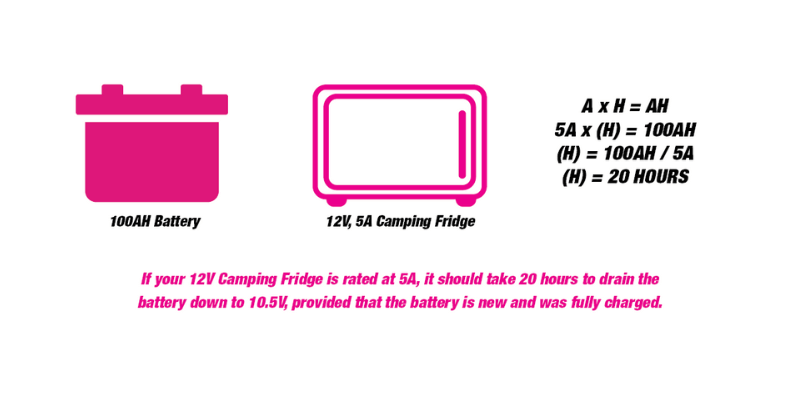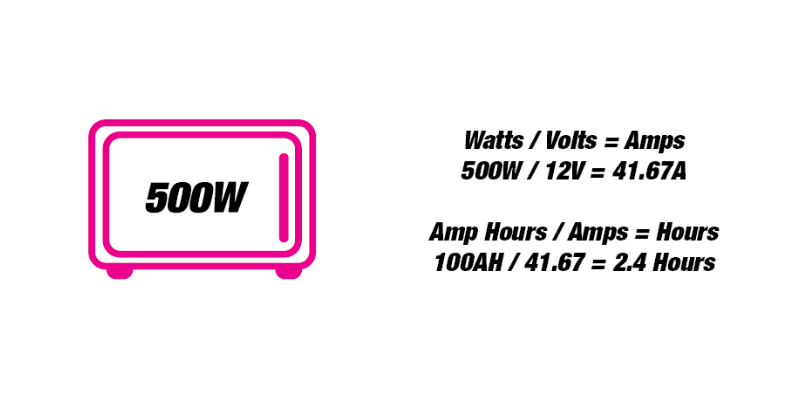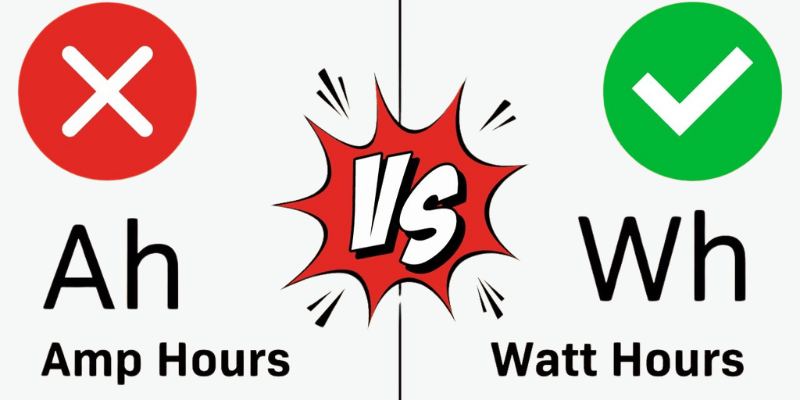Key Takeaway:
- Amp-hours (Ah) measure a battery’s capacity over time, while watt-hours (Wh) indicate total energy capacity, considering both current and voltage.
Whether you’re setting up a home solar system, or choosing a battery for your electric vehicle, it requires a bit of skill. Understanding amp hours (Ah) and watt hours (Wh) is essential to determine how much battery power you need. If you’re new to the world of batteries, these terms can be confusing, but we’re here to help simplify things for you.
In this straightforward guide, we will explain the relationship between amp hours and watts.
What are Amp-Hours and How are They Calculated?
Amp-hours, often written as Ah, are a unit of electrical charge commonly used to measure the capacity of a battery. It indicates how much electrical charge a battery can deliver over time. Understanding amp-hours is helpful for determining the runtime of a device powered by a battery and for selecting the right battery for a specific application.
The calculation of amp-hours involves multiplying the current in amperes (A) by the time in hours (h) that the current is flowing. The formula for calculating amp-hours is:
Amp-Hours = Current (in Amperes) x Time (in Hours)
For example, if a device draws 1 ampere of current and operates for 5 hours, the calculation would be:
1 A x 5 h = 5 Ah
This means that the device would consume 5 amp-hours of charge during its operation.

Battery manufacturers often specify the capacity of their batteries in terms of milliampere-hours (mAh) or ampere-hours (Ah). This information helps consumers understand how long a battery can power their devices before needing to be recharged or replaced.
Understanding Watt-Hours
Watt-Hours are considered the most effective measure for evaluating a battery’s capacity due to their comprehensive nature. This is because they take into account both current and voltage, offering a more holistic view of the battery’s capabilities. Their importance is particularly evident when comparing batteries with different voltage ratings. By quantifying the total energy stored in a battery, watt-hours offer insight into the overall potential work output of the battery.
The method for calculating watt-hours is easy. It simply requires the integration of the battery’s current, which is quantified in amperes, and its voltage into a specific formula. The equation to be used is:
Watt Hours = Amp Hours x Voltage
Consider a battery with a capacity of 10 ampere-hours and a voltage of 12 volts. By utilizing the given formula, you can calculate the total energy by multiplying these two values:
10Ah x 12V = 120 Wh
This result indicates that your battery has an energy capacity of 120 watt-hours. In other words, your battery is capable of delivering a total of 120 units of energy.
Understanding the watt-hour measurement of your battery offers numerous benefits. It is an essential tool for comparing various batteries, aids in accurately determining the size of battery backup systems, provides insights into your battery’s energy efficiency, among other advantages.

Key Differences Between Amp-Hours and Watt-Hours
It’s evident that amp-hours and watt-hours, while different, are closely related concepts, especially when considering time and current. These two metrics are crucial for evaluating a battery’s performance based on the energy needs.
To recap, amp-hours measure a battery’s capacity to hold a charge over time. Conversely, watt-hours represent the total energy capacity that a battery can deliver within a specific period. With this understanding, you can make well-informed decisions about the most suitable battery for your requirements.
If you need to calculate watt-hour ratings from amp-hours, use this formula:
Watt hour = Amp hour x Voltage
And if you need to find out the amp-hour value from watt-hours:
Amp hour = Watt-hour / Voltage
At Holo Battery, our commitment goes beyond a passion for LiFePO4 technology; we’re dedicated to delivering the highest quality, customized solutions that prioritize efficiency, performance, and customer service. If you seek guidance or have questions in selecting the perfect battery solution, do not hesitate to reach out to us. We’re here to assist you every step of the way!


